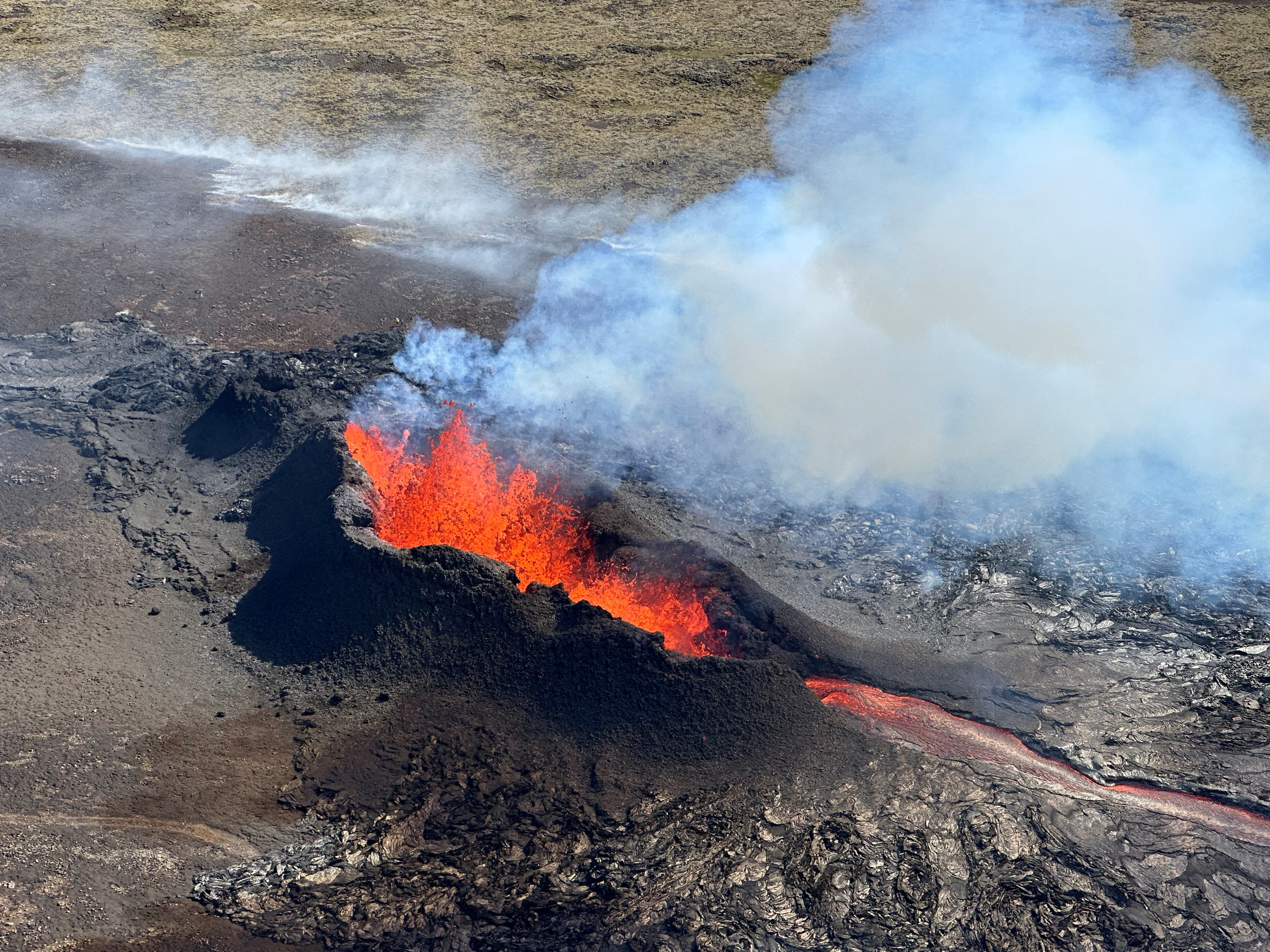Arabian Post Staff -Dubai

A fresh volcanic eruption occurred on the Reykjanes Peninsula in southwestern Iceland on Thursday, marking the sixth eruption in the region since December. The volcano released a significant amount of hot lava, heightening concerns about ongoing geological activity in this seismically active area.
Icelandic authorities reported that the new eruption began early in the morning, with lava flows visible from nearby towns. Emergency services have been deployed to monitor the situation and provide guidance to residents. The eruption is centered in a volcanic zone that has seen heightened activity over the past several months, following a series of eruptions that started in late 2023.
The Reykjanes Peninsula, known for its volcanic and geothermal activity, has been the site of intense geological changes. This latest eruption continues a trend of frequent volcanic events that have affected the region since late last year. Scientists from the Icelandic Meteorological Office and other research institutions are closely observing the eruptions to better understand the patterns and potential impacts on the surrounding environment.
Local authorities have issued advisories to ensure public safety, advising residents to stay indoors and avoid areas close to the eruption site due to hazardous conditions. The volcanic ash and gases emitted could pose health risks, and the lava flows present a threat to nearby infrastructure.
The ongoing volcanic activity on the Reykjanes Peninsula highlights the dynamic nature of Iceland’s geological environment. The country, situated on the Mid-Atlantic Ridge, experiences regular volcanic activity due to tectonic movements. The current series of eruptions reflects the region’s complex volcanic system and ongoing seismic adjustments.
Efforts are underway to assess the impact on local communities and infrastructure. Reykjavik and other nearby areas are monitoring air quality and preparing for possible evacuations if the situation worsens. The government is coordinating with scientific experts to provide updated information and ensure that appropriate measures are in place to handle potential risks.
In addition to the immediate concerns, researchers are utilizing this series of eruptions as a valuable opportunity to study volcanic processes and improve prediction models. Understanding the mechanisms driving these eruptions can enhance preparedness and response strategies for future events.
This eruption continues a significant period of volcanic activity in Iceland, which has garnered attention from both scientists and the public. The frequency and intensity of eruptions in this region underscore the importance of ongoing monitoring and research to mitigate the impact on communities and better anticipate future volcanic events.
As the situation develops, authorities remain vigilant and committed to safeguarding the well-being of residents while advancing scientific knowledge about volcanic phenomena in one of the world’s most active volcanic regions.




